As the digital age continues to transform the way we work, job-seekers are now faced with a new challenge: how to market yourself in an extraordinarily crowded and digital marketplace? Resumes are no longer just handed out to potential employers. Instead, you must proactively sell your skills, education, and experience as part of your resume. This article will help you understand why creating a lawyer resume is essential, what makes a great lawyer resume, and tips on how you can create one of your own. With more than 1.2 million registered attorneys in the United States alone and an increasing number of law firms advertising their services online, competition for positions as a lawyer is intense. To stand out from the crowd and increase your chances of being shortlisted for interviews, your resume must communicate why hiring you would be beneficial to any potential employer.
Lawyer Resume Example

Download This Lawyer Resume as PDF
Immigration Attorney Resume Example
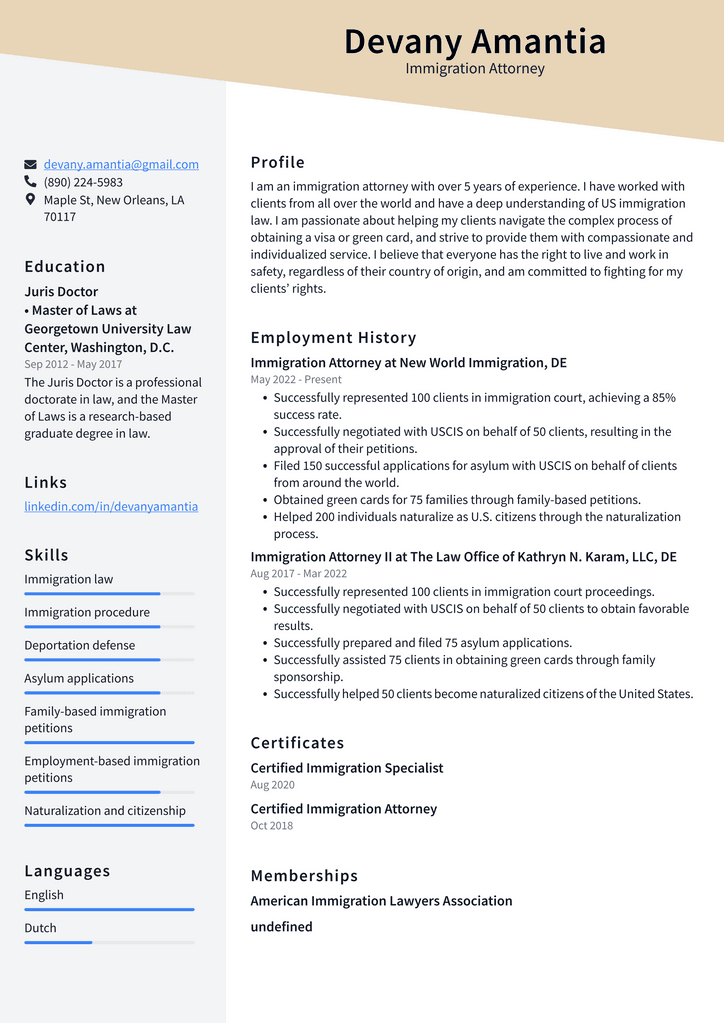
Download This Immigration Attorney Resume as PDF
Criminal Defense Attorney Resume Example
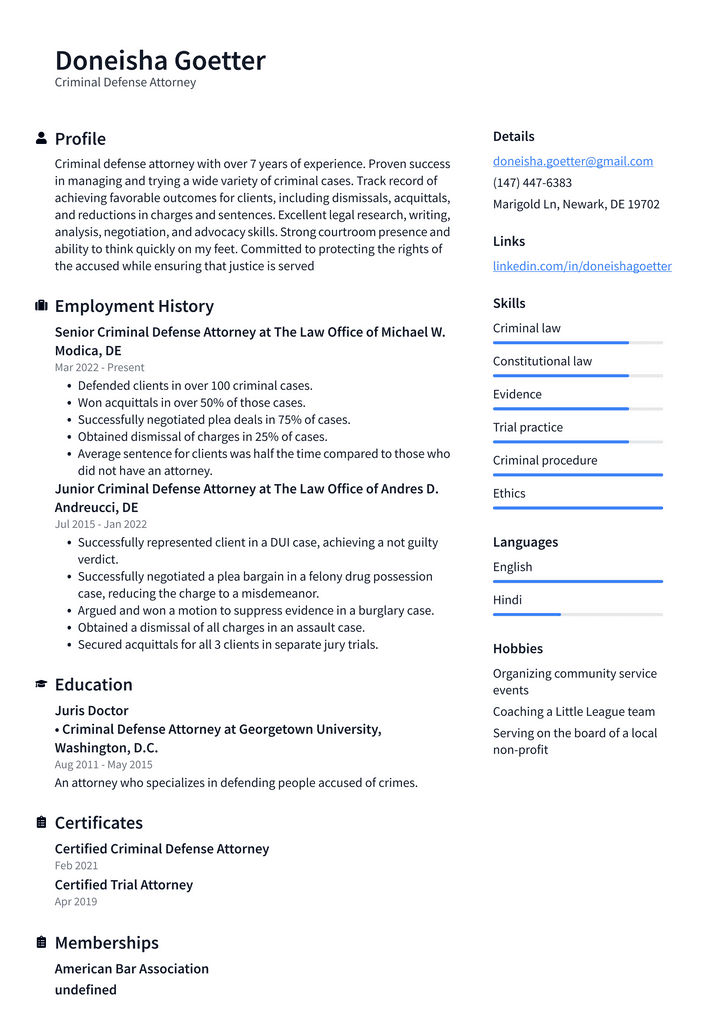
Download This Criminal Defense Attorney Resume as PDF
Commercial Litigation Attorney Resume Example
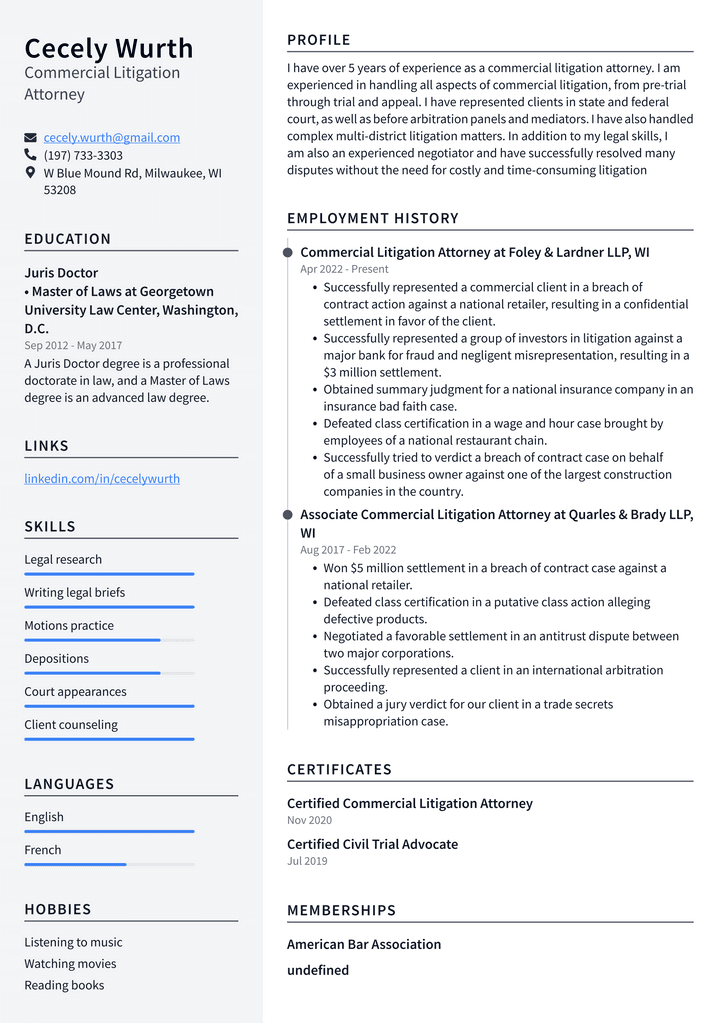
Download This Commercial Litigation Attorney Resume as PDF
Environmental Attorney Resume Example
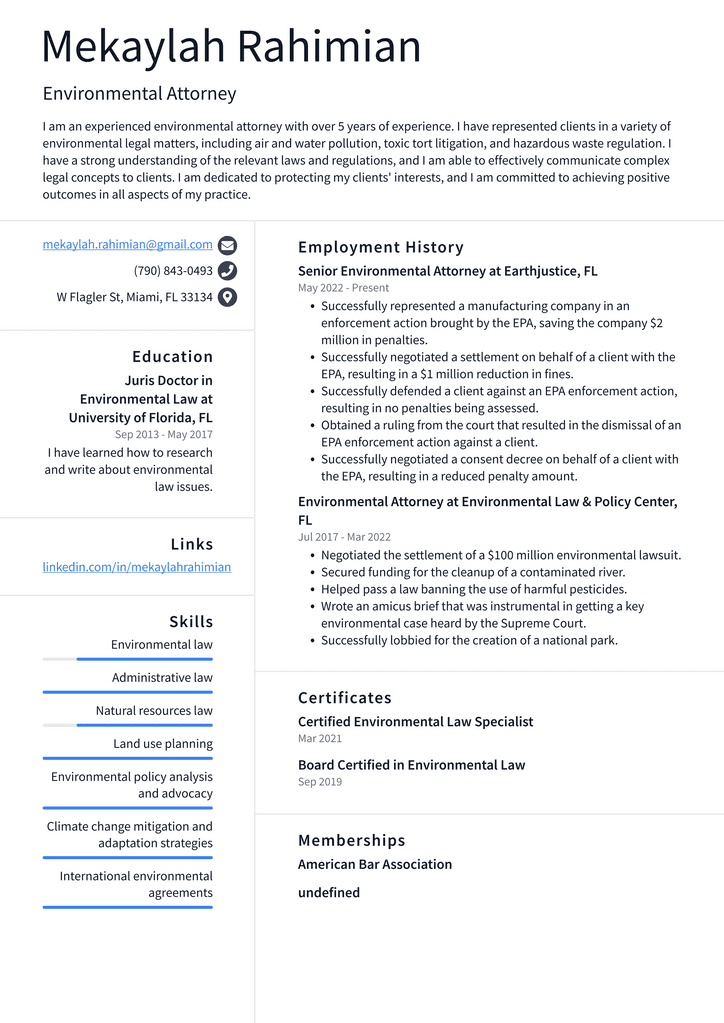
Download This Environmental Attorney Resume as PDF
Family Law Attorney Resume Example
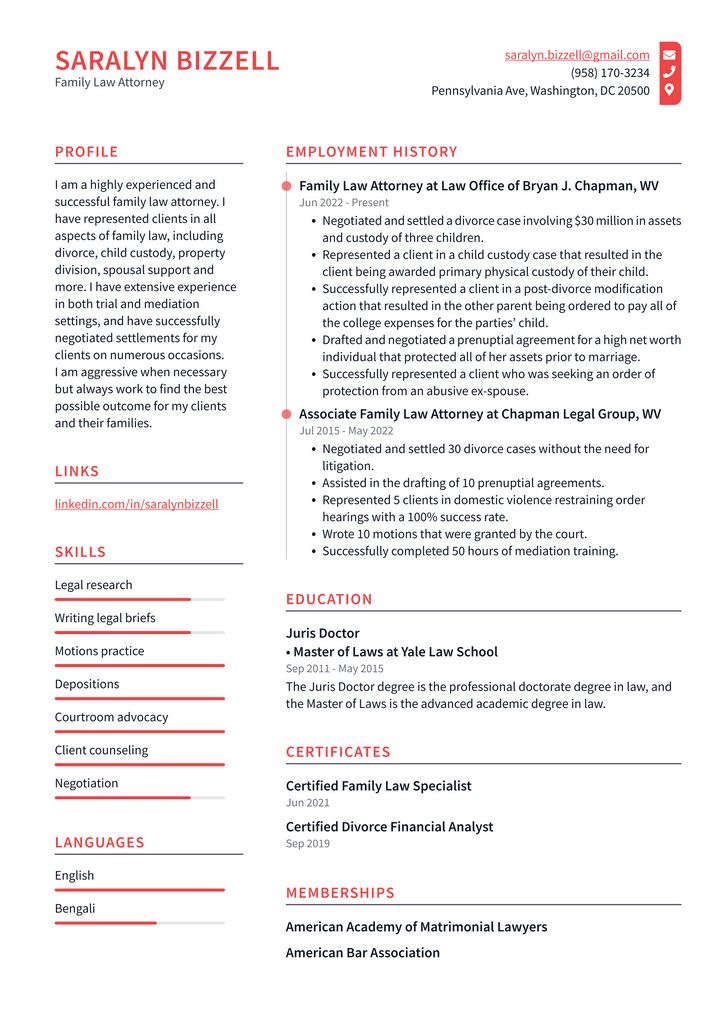
Download This Family Law Attorney Resume as PDF
Employment Attorney Resume Example
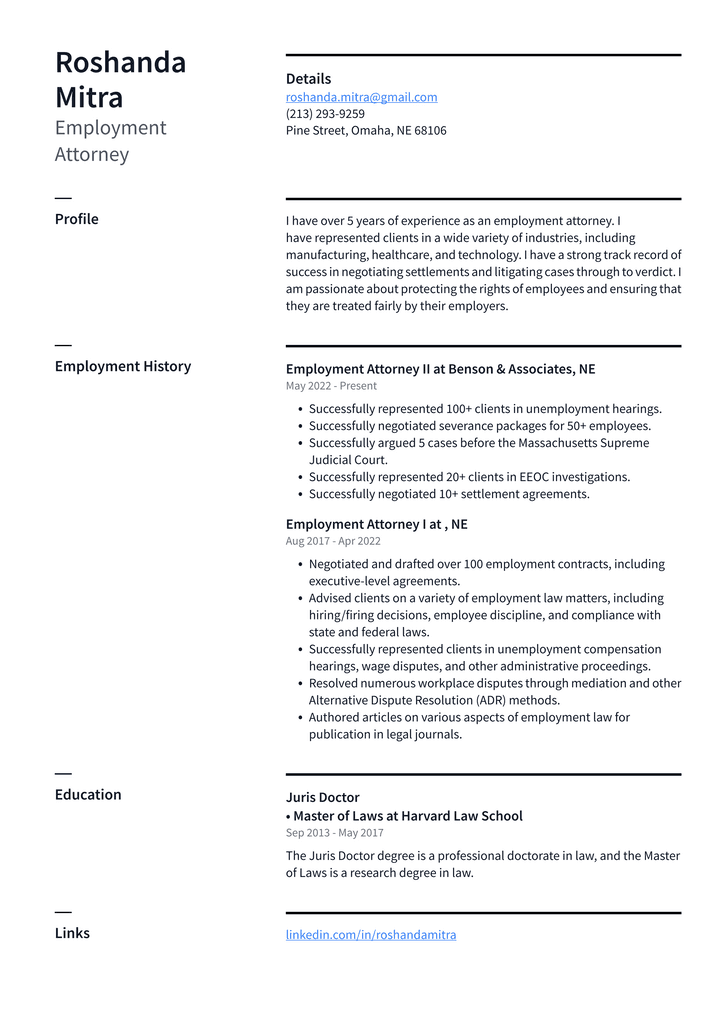
Download This Employment Attorney Resume as PDF
What’s the Importance of a Resume for Lawyers?
How you present yourself and your skills on your resume will significantly impact whether you get shortlisted for job interviews. With so many lawyers competing for jobs, you need to do everything you can to stand out from the crowd. A resume is your opportunity to showcase your skills and past achievements and explain how you can contribute to an employer’s business. It’s also the first chance for you to make a positive first impression on hiring managers, so it’s crucial that your resume is straightforward to read and that it uses industry-standard language and formatting. A well-written lawyer resume will ensure that your skills and experience are highlighted and that you’re not just looking for any job but the right one. A resume will also help you gauge your preparedness for interviews and increase your confidence.
Which Is The Best Format For a Lawyer Resume?
There are two main formats for resumes: the chronological resume and the combination resume. The chronological resume is the traditional resume format. It lists your skills, education, and work history in reverse chronological order, starting with your most recent position. The combination resume format, on the other hand, combines the skills and achievements section with the work history section. While there’s no “right” format for creating a resume, it’s essential to be aware of the various options available to choose the one that best showcases your skills. Once you’ve decided on a format, it’s vital to consistently use it for all of your future resume and cover letter creations.
What Goes Into A Great Lawyer Resume?
A great lawyer resume will communicate your skills and experience and why an employer should hire you. It’s not enough to list your skills and experience, though. Your resume must also demonstrate how you can use your skills to benefit employers. Your resume should be data-driven and highlight relevant information, such as your degree, GPA, work experience, honors and awards, and language skills. It should also be scannable and easy to read. When it comes to formatting, avoid using fancy font styles, and stick to plain and simple fonts, such as Times New Roman, Arial, or Calibri. Limit your resume to one page, and avoid going over five paragraphs. The best resume is the one that gets read, so remember to keep it simple and easy to read.
Tips To Create An Effective Lawyer Resume
If designing a resume from scratch still seems intimidating, don’t worry. You can also use resume templates to help you create your resume. If you decide to use a template, make sure it’s a legal resume template designed to showcase your skills and experience. Make sure your resume presents accurate information. This includes checking and correcting your grammar and spelling. Avoid using fancy fonts, and use spaces wisely to make your resume easier to read. Include your contact details at the top of your resume, and sign your resume at the end. Don’t forget to include your education, professional licensing, and certifications. Make sure your resume has a clear focus and is tailored to the job you’re applying for.
Conclusion
Your resume is your ticket to securing job interviews, and a great resume will put you ahead of the competition. With more than 1.2 million registered attorneys in the United States alone, competition for positions as a lawyer is intense. When designing a lawyer resume, the most important thing is to make sure it expresses your personality, skills, and experience and why hiring managers should hire you. It’s also essential to make sure your resume is easy to read and visually appealing. How you present yourself and your skills on your resume will significantly impact whether you get shortlisted for job interviews. With so many lawyers competing for jobs, you need to do everything you can to stand out from the crowd.